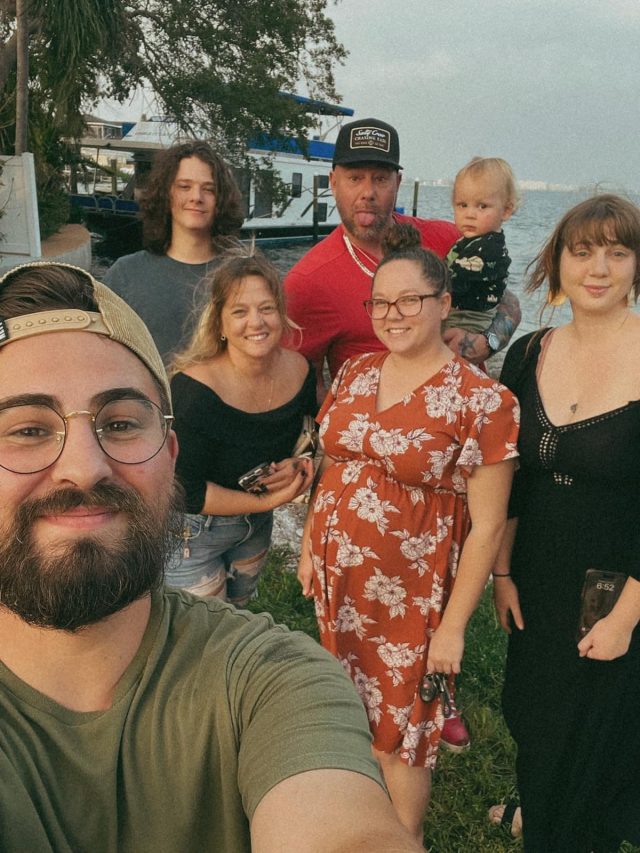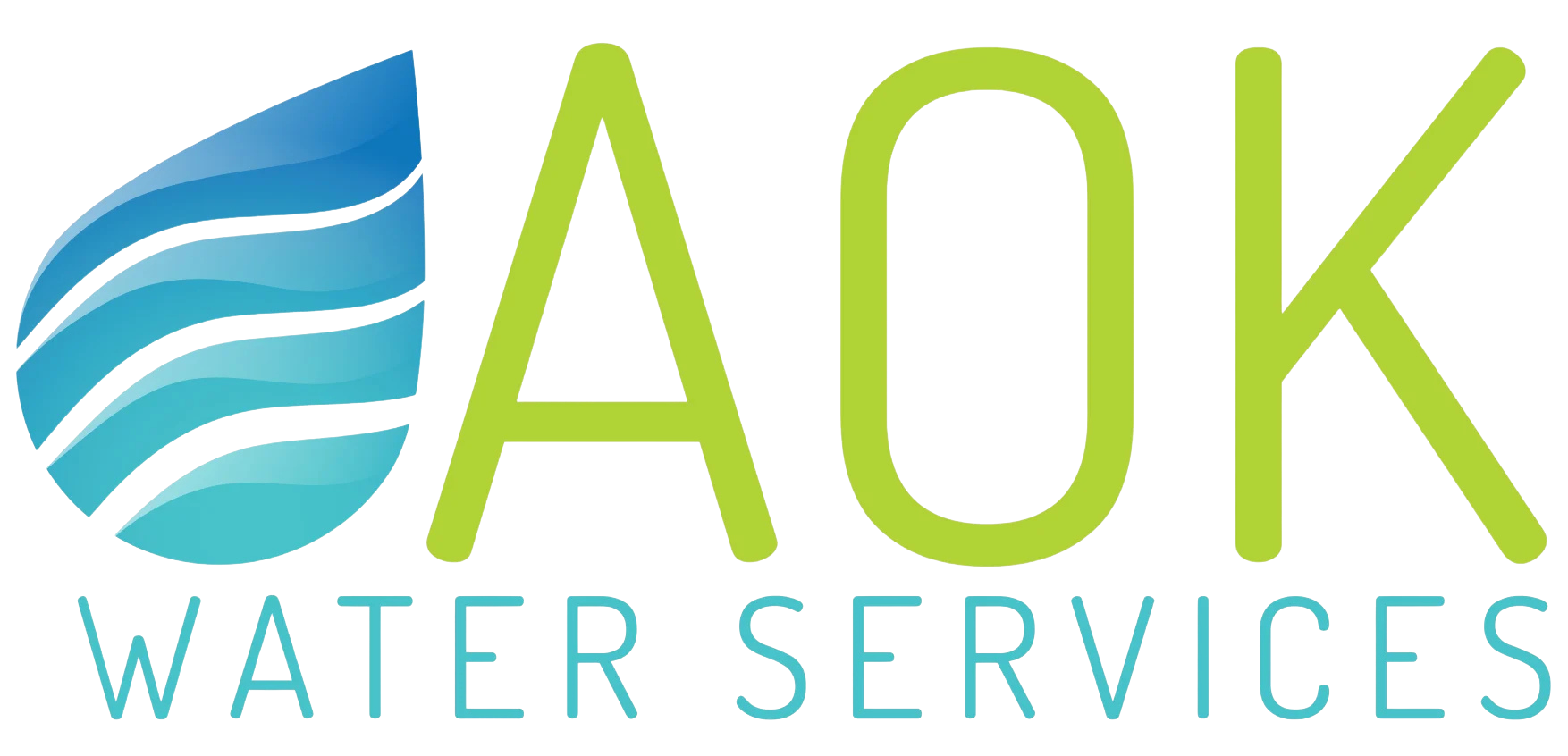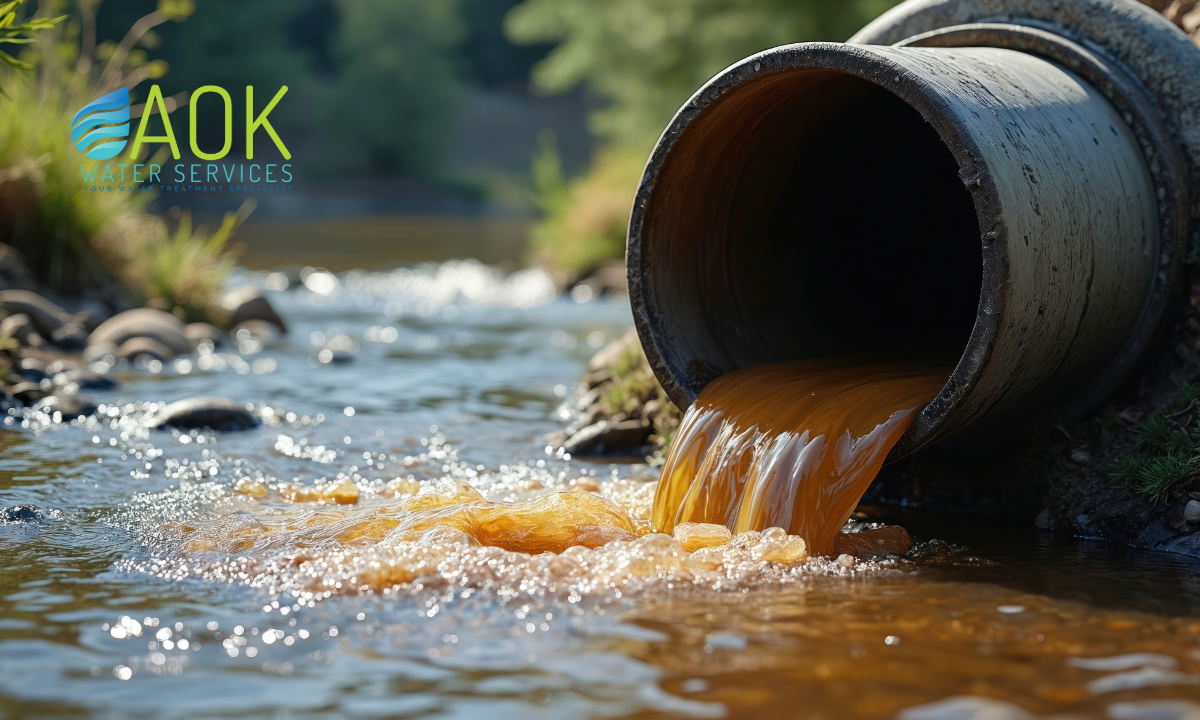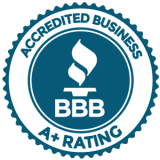By AOK Water Services, LLC | Largo, Florida
BLUF (Bottom Line Up Front)
Private Well Water Problems and Peroxide Treatment Solutions in Polk County
Suppose you live in Polk County and rely on a private well. In that case, your water may contain harmful contaminants like bacteria, nitrates, pesticides, iron, sulfur, and hard minerals—many of which you can’t see, taste, or smell. These issues can silently damage your plumbing, stain your fixtures, and put your family’s health at risk. As a Polk County resident and water treatment expert, I’ve seen it all—and fixed it. At AOK Water Services, LLC, we use professional-grade water softeners and peroxide-based treatment systems to remove dangerous contaminants and protect your home. Clean, safe, great-tasting water is possible—but only if you test, treat, and trust your well to the right team.
Private Wells in Polk County: Hidden Risks and Clean Water Solutions
I’ve spent years working with water treatment in central Florida, and Polk County stands out. It’s more inland and rural than our coastal neighbors, especially in its eastern and southern stretches. Many homes here – particularly in unincorporated areas and on farms – are far from any city water lines and rely on their own private wells. In fact, Florida’s Department of Health estimates about 1 in 5 Floridians get their water from private wells or small private systems, and Polk County is no exception. We also have extensive agriculture in this county; citrus groves, strawberry fields, cattle ranches – all often using wells for irrigation and livestock. This combination of widespread well usage and heavy farming means we must be extra vigilant about water quality. Florida has over 31,000 known groundwater contamination sites statewide, and our porous limestone aquifers can allow pollutants to seep into wells silently. Just because your well water looks clear and tastes okay doesn’t always mean it’s safe.
As a water treatment specialist (and a Polk County resident myself), I’ve tested wells for families all across the county – from Lakeland and Bartow to Lake Wales and Frostproof. Time and again, I see the same recurring problems that can put both health and home at risk. Below, I’ll break down the most common issues with private well water in Polk County, and then I’ll share how we tackle them to ensure your water is clean and safe.
Common Well Water Contaminants and Problems in Polk County
Pesticides and Herbicides:
Agricultural chemicals are a fact of life in Polk County’s farming communities. After heavy rains, pesticide runoff from crops and groves can seep into the groundwater. It’s not unusual for us to find traces of atrazine, glyphosate (the weed-killer Roundup), and 2,4-D in local well water. You can’t see or smell these chemicals in the water, but they’ve been linked to serious health risks (atrazine is a hormone disruptor, glyphosate is a suspected carcinogen, etc.). Even homes near golf courses or large lawns can see herbicide runoff in their wells. Over time, these toxins in your drinking water may contribute to cancers or developmental issues if not filtered out.
Fertilizer Nitrates:
Along with pesticides, nitrates from fertilizer use are a widespread pollutant in Polk’s rural areas. Fertilizer applied to citrus groves, crop fields, or even residential lawns can leach into the aquifer that feeds your well. Failing septic systems are another common nitrate source. High nitrate levels in drinking water are especially dangerous for babies – they can lead to methemoglobinemia, or “blue baby syndrome,” which interferes with an infant’s oxygen levels. 91% of private wells tested in Polk from 1990–2006 met the safety limit for nitrate, but that means nearly 1 in 10 had too much It’s an invisible threat; water with excessive nitrates looks and tastes normal, so testing is the only way to catch it.
Bacterial Contamination:
Microbial issues are a very real concern for private wells. Unlike city water which is chlorinated, well water receives no automatic disinfection. I’ve encountered wells positive for coliform bacteria and even E. coli, usually caused by surface contamination. In rural Polk, this can happen if a well is shallow or has a poor seal – bacteria from nearby septic tanks, livestock barns, or manure-fertilized fields can seep into the groundwater. Heavy rain and flooding (not uncommon in our summers) can also wash bacteria into your well. What’s scary is that you often can’t tell – bacterial contamination has no smell or taste. That’s why the Florida Dept. of Health urges well owners to test for bacteria at least annually. Drinking or cooking with contaminated water can cause stomach bugs, diarrhea, and serious illness, especially in children or the elderly.
Hard Water, Iron, and Sulfur:
If you’ve ever noticed orange rust stains in your sinks or that “rotten egg” sulfur smell, you’re familiar with this problem. Polk County’s groundwater is rich in minerals like calcium, magnesium, iron, and manganese. While not toxic by themselves, high levels of these cause “hard water.” Hard water can leave white scale buildup on faucets, clog pipes, and reduce water heater efficiency. Iron causes reddish-brown staining on fixtures and laundry, and sulfur (hydrogen sulfide gas) makes water smell foul. These issues are extremely common in Florida’s wells. In fact, the hardness minerals in well water will damage your plumbing and appliances over time – water heaters and dishwashers can fail prematurely due to scale deposits. Many Polk homeowners also report dry, itchy skin or dull hair, which can be exacerbated by bathing in hard water.
Other Natural and Emerging Contaminants:
Private wells can also contain things you wouldn’t expect. Heavy metals like arsenic or lead sometimes show up – Florida’s geology naturally contains them in trace amounts. Polk County in particular sits on phosphate-rich soil (thanks to historical phosphate mining in the region), which means radioactive elements like radium and uranium can leach into local groundwater. These radiological contaminants are found in certain “delineated areas” of Polk and can increase cancer risk over time. On top of that, we now know about “forever chemicals” (PFAS) making their way into water supplies. Recent studies found PFAS compounds in about 63% of Florida’s tested spring water sources, and they’ve been detected in some private wells near industrial sites and firefighting areas. PFAS are chemicals from things like firefighting foam and non-stick coatings, and they’ve been linked to immune system and thyroid problems. So even though pesticides and bacteria are the big worries, we have to keep an eye on these less obvious contaminants too.
Impacts on Health and Home
Contaminated well water isn’t just an abstract problem – it has real consequences for your health and your household. Health-wise, the dangers range from acute to chronic. If your well has bacterial contamination, your family could get sick with gastrointestinal illnesses (think nausea, diarrhea, cramping) after drinking the water or even brushing teeth with it. Nitrates in water can silently threaten infants, causing the potentially fatal blue baby syndrome if formula is mixed with high-nitrate water. Long-term exposure to pesticide residues, heavy metals, or PFAS in your water can increase the risk of cancers, neurological disorders, hormonal imbalances, and kidney problems down the line. And radioactive particles like radium in water accumulate in the body, contributing to cancer risk over the years. In short, untreated well water can seriously undermine your family’s health if pollutants are present.
Beyond health effects, poor water quality takes a toll on your home and fixtures. I’ve seen homeowners spend thousands replacing corroded or clogged appliances and plumbing due to well water issues. Mineral-heavy hard water leads to scale buildup inside hot water heaters, dishwashers, and washing machines, making them wear out faster or use more energy. Iron in the water will stain toilets, sinks, and tubs an unsightly orange-brown, and it can even tint blonde hair a reddish color. Sulfur odors make showering an unpleasant experience (nobody enjoys a rotten-egg smell in the bathroom). Even your soap and detergents don’t work as well in very hard water – you’ll notice dingy laundry and soap scum in the shower. Plus, bathing in water with high chlorine (for those on city water) or just high hardness can dry out your skin and hair, causing itchiness and irritation. The bottom line is that water problems affect your quality of life: from the taste of your drinking water and the comfort of your showers, to the lifespan of your water-using appliances and plumbing. It’s all connected.
Solutions: How We Treat and Protect Your Well Water
So what can you do if your Polk County well has any of these issues? First and foremost: test your water. As a professional, I never guess when it comes to water quality – I always start with a comprehensive water test. This usually includes checking for bacteria (coliform/E. coli), nitrates, pH, hardness minerals, sulfur, iron, and sometimes specialty tests for pesticides or metals if we suspect those. The Florida DOH recommends private wells be tested at least once a year, and frankly I agree – wells are unregulated and can change quickly, especially after floods or hurricane season. If you haven’t tested your well in a long time (or ever), that’s step one. Knowing exactly what’s in your water allows us to target the right solution.
Whole-House Filtration:
For chemical contaminants like pesticides, herbicides, and organic chemicals, I often install a whole-house filtration system. Typically, this involves activated carbon filters or similar advanced media that trap those harmful chemicals before the water reaches any faucet in your home. A properly designed whole-house filter can remove things like atrazine, glyphosate, and solvent traces to non-detectable levels. This means you can shower, cook, and wash vegetables without worrying that invisible farm runoff is coming out of the tap. Importantly, these systems also take out any chlorine or disinfection byproducts if your water was previously chlorinated or if you occasionally shock your well. The result is water that not only is safer to drink but also tastes and smells better (no more chemical or musty odor). I customize filtration for each home – some wells need a focus on pesticide removal, others maybe volatile organic chemicals – but the goal is the same: stop the contaminants at the entry point.
Water Softeners:
To address hard water and its effects, a water softener is the go-to solution. I install whole-home softener units that use an ion exchange process to pull out calcium and magnesium ions (the hardness) and replace them with sodium or potassium. Once a softener is in place, you immediately see a difference: no more white scale crusting on faucets, soaps lather better, and those rust-orange stains from iron will gradually disappear. Soft water protects your plumbing and appliances from mineral buildup damage– your water heater and dishwasher will thank you, and you’ll likely extend their lifespan by years. In Polk County, I consider a softener almost essential if your hardness level is high. It truly is the remedy for scratchy laundry, spotted glassware, and that film left on your skin from showering. We also often include a sediment pre-filter to catch sand or grit (sometimes an issue with older wells), which prevents clogging up the softener or fixtures.
Peroxide Injection Systems:
One advanced treatment I use for many private well customers is a hydrogen peroxide disinfection system. This might sound high-tech, but it’s extremely effective for the kind of issues we see in Polk County wells. Essentially, the system meters a tiny, food-grade amount of hydrogen peroxide into your water as it enters the house. Peroxide is a powerful oxidizer – it kills bacteria on contact and also reacts with iron and sulfur. In practical terms, this means it disinfects the water and eliminates that rotten egg sulfur smell at the same time. Unlike chlorine, peroxide doesn’t leave any taste or chemical byproducts, and it’s very quick-acting. I’ve found that a peroxide-based system can completely remove iron staining and sulfur odors, and bring bacteria counts down to zero, all in one go. It’s a bit of a specialty of our company (not every water treatment outfit offers it), and it works wonders for wells that have iron bacteria or persistent sulfur issues. Often we pair the peroxide injector with a special filter (like a catalytic carbon or KDF media filter) that captures the oxidized sulfur/iron particles, so by the time the water reaches your taps, it’s clean, clear, and odorless.
UV and Additional Purification:
In some cases, we’ll recommend extra layers of protection. For drinking water specifically, many homeowners opt for an under-sink Reverse Osmosis (RO) unit. An RO system provides ultra-fine filtration, removing things like any leftover nitrates, salts, lead, or even PFAS “forever chemicals” that whole-house systems might not fully catch. It gives you bottle-quality drinking water at a dedicated faucet. In fact, our advanced RO units can remove heavy metals, nitrate, PFAS, arsenic, and even radiological particles at the kitchen tap. I often install RO filters for folks who want an extra peace of mind for their cooking and drinking water, while the whole-house system handles the larger-volume needs like bathing and laundry. The combination of treatments – say, a sediment filter, peroxide injector, carbon tank, water softener, and RO unit – might sound like a lot, but each component plays a role in delivering truly safe, clean water throughout your home.
Polk County Municipalities & Well Water Context
Polk County comprises 17 incorporated municipalities. While city limits often have access to public utilities, many residents in surrounding areas still rely on private wells, especially for drinking water and irrigation.
Cities:
- Auburndale – A growing suburban city between Lakeland and Winter Haven; many newer neighborhoods are tied into municipal water, but rural pockets use wells.
- Bartow (county seat) – Located inland with a significant rural perimeter; agricultural and older neighborhoods may still rely on wells.
- Davenport – A rapidly expanding area near Orlando; much of the newer development connects to city water, though outlying subdivisions may use wells.
- Eagle Lake – Small lakeside city; most residents receive municipal water inside city limits, but outskirts often use private wells.
- Fort Meade – Historic town in southwest Polk; many homes still use wells, especially in older, unserviced areas.
- Frostproof – Southern Polk agricultural community; a mix of city water availability and widespread well use in older or rural zones.
- Haines City – Growing urban center north of Winter Haven; most homes in the city have public water, but older outskirts may use wells.
- Lake Wales – Centrally located on the Lake Wales Ridge; city water serves most, but rural residential areas outside use wells.
- Lakeland – Largest city in the county with full municipal infrastructure; private well use is rare within city limits.
- Mulberry – Smaller city with a history in phosphate mining; many homes—especially in agricultural zones—rely on wells.
- Winter Haven – Part of the Lakeland–Winter Haven metro area; city water is standard inside city limits.
Towns:
- Dundee – A small town known for citrus product tours; surrounded by rural land, so many residents rely on wells.
- Hillcrest Heights, Lake Hamilton – Smaller towns where municipal services are limited; private wells are common.
Village:
- Highland Park – A small village with limited municipal infrastructure; well usage is likely widespread.
Census-Designated and Unincorporated Areas:
Many areas such as Alturas, Lake Alfred, Babson Park, Bradley Junction, Fuller Heights, Highland City, Homeland, Poinciana, Four Corners, Kathleen, and others fall outside city limits. Residents in these areas almost always rely on private wells, as municipal water services do not extend there.
Finally, I’d like to emphasize that all these solutions are tailored to your well’s specific water chemistry. There’s no one-size-fits-all in water treatment. As a local, family-owned business, we understand the common water issues in Polk County and fine-tune our systems to the test results from your well. Sometimes a well might be excellent on bacteria but high in pesticides; another might have no chemicals but terrible hardness and iron – the treatment will be completely different in each case. The good news is that technology and expertise exist today to fix virtually any water quality problem. My team and I have helped families all over Polk County reclaim their water – making it crystal clear, great-tasting, and safe for bathing and drinking. It’s incredibly satisfying to turn suspect well water into something pure and dependable.
Conclusion
Living in Polk County’s rural areas doesn’t mean you have to accept poor water quality. The problems in private wells – from invisible bacteria or nitrates to annoying iron stains and hard water scale – can all be addressed with proper testing and the right treatment systems. Remember, unlike city water, private wells aren’t monitored by any authority, so it really is up to us as homeowners (and professionals like me) to ensure the water is healthypolk.floridahealth.gov. The stakes are high: your family’s health, your home’s plumbing, and your peace of mind all depend on having clean water. The flip side is that investing in a good well water treatment setup pays off enormously – you get the peace of mind that every tap in your home is delivering safe, refreshing water. No more worrying about what’s in the glass you’re about to drink or whether the washing machine will survive another year of mineral buildup.
From my first-hand experience, I can tell you that most of these well water issues are solvable. With a combination of diligent testing, filtration, softening, and disinfection (like the systems AOK Water Services provides), even a problematic well can become a reliable source of excellent water. In the end, having a private well in Polk County can be just as safe as city water – if not safer – once you give it the right care. My goal is to make sure every homeowner on a well enjoys that same confidence in their water. After all, water is life, and everyone in our community deserves water that is clean, healthy, and free of worries.
Sources:
- Florida Department of Health. (2023). Private well water. https://www.floridahealth.gov/environmental-health/private-well-testing/
- Florida Department of Environmental Protection. (2023). Groundwater contamination monitoring. https://floridadep.gov/water/groundwater-program
- U.S. Environmental Protection Agency (EPA). (2023). Nitrate in drinking water. https://www.epa.gov/nutrient-policy-data/epa-drinking-water-nitrate
- Florida Department of Health – Polk County. (2023). Well sampling and bacteriological testing. https://polk.floridahealth.gov/programs-and-services/environmental-health/private-well-testing/index.html
- University of Florida IFAS Extension. (2022). Well water quality and protection in Florida. https://edis.ifas.ufl.edu/publication/SS552
- U.S. Geological Survey (USGS). (2023). Water quality in Florida’s aquifers. https://www.usgs.gov/centers/florida-water-science-center
- Centers for Disease Control and Prevention. (2023). Private Ground Water Wells. https://www.cdc.gov/healthywater/drinking/private/wells/
- Polk County Environmental Services. (2022). Septic systems and groundwater protection. https://www.polk-county.net/land-and-water-resources/environmental-services
- Agency for Toxic Substances and Disease Registry (ATSDR). (2023). Toxicological profile for glyphosate. https://www.atsdr.cdc.gov/toxprofiles/tp214.html
- Florida Department of Agriculture and Consumer Services. (2022). Pesticide use and groundwater contamination. https://www.fdacs.gov/Agriculture-Industry/Water/Agricultural-Groundwater
- AOK Water Services, LLC. (2024). Water treatment systems for Florida well owners. https://aokwaterservices.com
- Florida Department of Health. (2023). Health risks associated with drinking water contaminants. https://www.floridahealth.gov/environmental-health/drinking-water/index.html
- U.S. Environmental Protection Agency (EPA). (2024). PFAS in drinking water. https://www.epa.gov/pfas
- Water Quality Association. (2023). Hydrogen peroxide injection systems for well water treatment. https://www.wqa.org
– Kevin, Owner of AOK Water Services
📞 Call Kristie or Kevin today at 727-709-0889
📩 Or contact us online.




